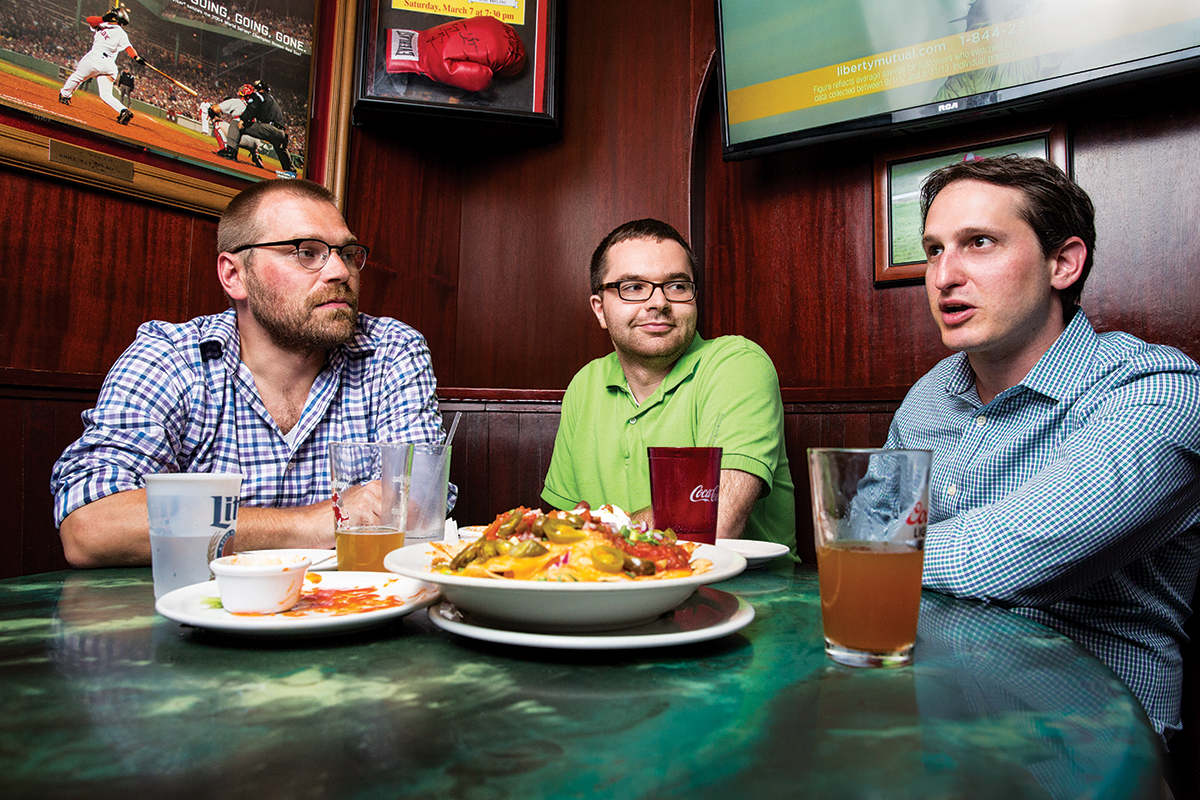DraftKings Will Merge with FanDuel, Stay in Boston

From left, Matt Kalish, Paul Liberman, and Jason Robins of DraftKings. / Photograph by Ken Richardson for Power Lunch
The era of online fantasy sports betting is set to evolve today, as the two companies that dominate the market announced they will merge.
Boston-based DraftKings and New York’s FanDuel said Friday they would combine resources and stop competing with one another as they work to sustain a business model that has come under an increasing amount of pressure from regulators around the country.
The deal—rumored for months—will close next year, according to a news release from both companies. The will need approval from federal regulators.
In a statement signed by the company’s founders Jason Robins, Paul Liberman, and Matt Kalish, DraftKings said the deal would be a win for its customers and said those who use its platform should not expect any changes in the short-term.
We’re excited to announce that DraftKings and FanDuel have reached a merger agreement. We believe this merger will enable us to further accelerate our investments in product innovation, promotions, and a high-quality customer experience. We recognize that there will be lots of questions, and we’re committed to maintaining an open dialogue with you throughout the process. This announcement does not impact your immediate experience at DraftKings, as the transaction is not officially closed—consider it business as usual.
We’re excited to announce that DraftKings and FanDuel have reached a merger agreement! Read more: https://t.co/KmG1DjJLOdpic.twitter.com/50jDDu3EBK
— DraftKings (@DraftKings) November 18, 2016
A name for the new company hasn’t been announced, and it appears that its overseers plan to have headquarters in both Boston and New York, according to the release. Robins, who is DraftKings’ CEO, will be CEO of the new company. FanDuel CEO Nigel Eccles will be chairman of the board.
“Being able to combine DraftKings and FanDuel presents a tremendous opportunity for us to further innovate and disrupt the sports industry,” Eccles said in a statement. “While both companies have accomplished much already, this transaction will create a business that can offer a greater variety of offerings, appealing to new users, including the tens of millions of season-long fantasy players that haven’t yet tried our products.”
Online fantasy sports-betting industry has flourished rapidly in recent years, outpacing regulators’ ability to keep up with the new industry. Amid all that growth, and following an aggressive advertising blitz that saw provocative ads played nearly constantly on viewers’ TVs, officials sought to clamp down on the companies, who many have argued are illegally profiting off of online gambling. FanDuel and DraftKings have argued their products are games of skill, not of chance, and have scored a series of legal victories—most notably in New York, but also in Massachusetts—but have spent handsomely doing so. Reports suggest the rival ventures began to see more benefit in working together than competing separately.


